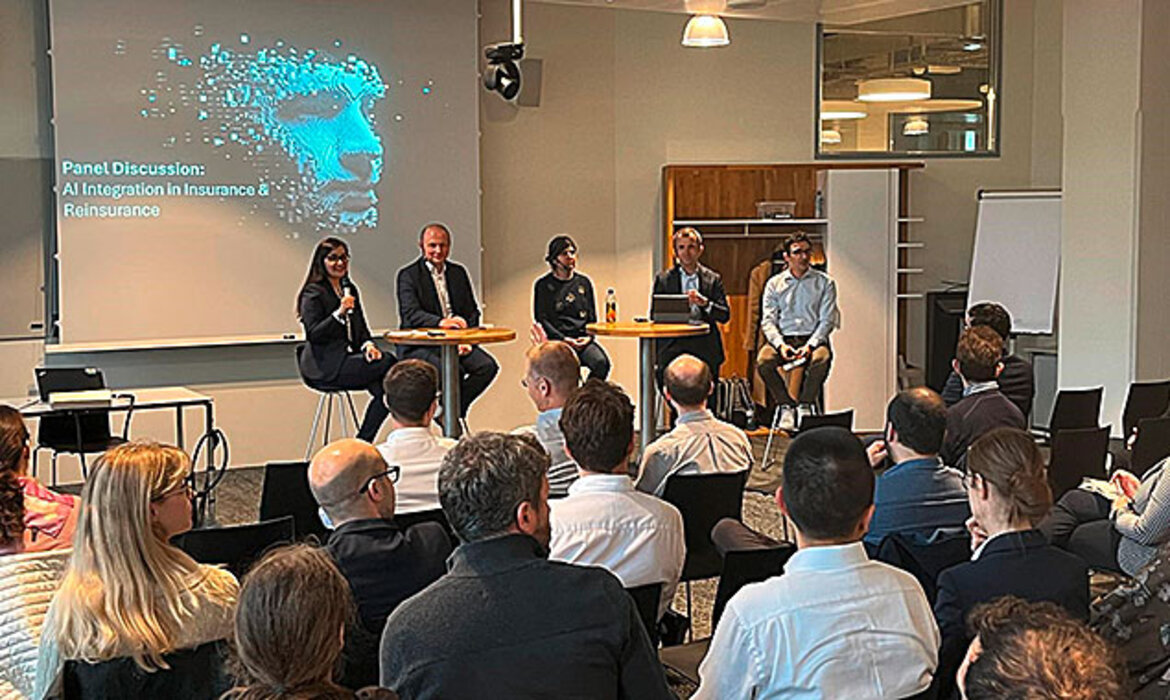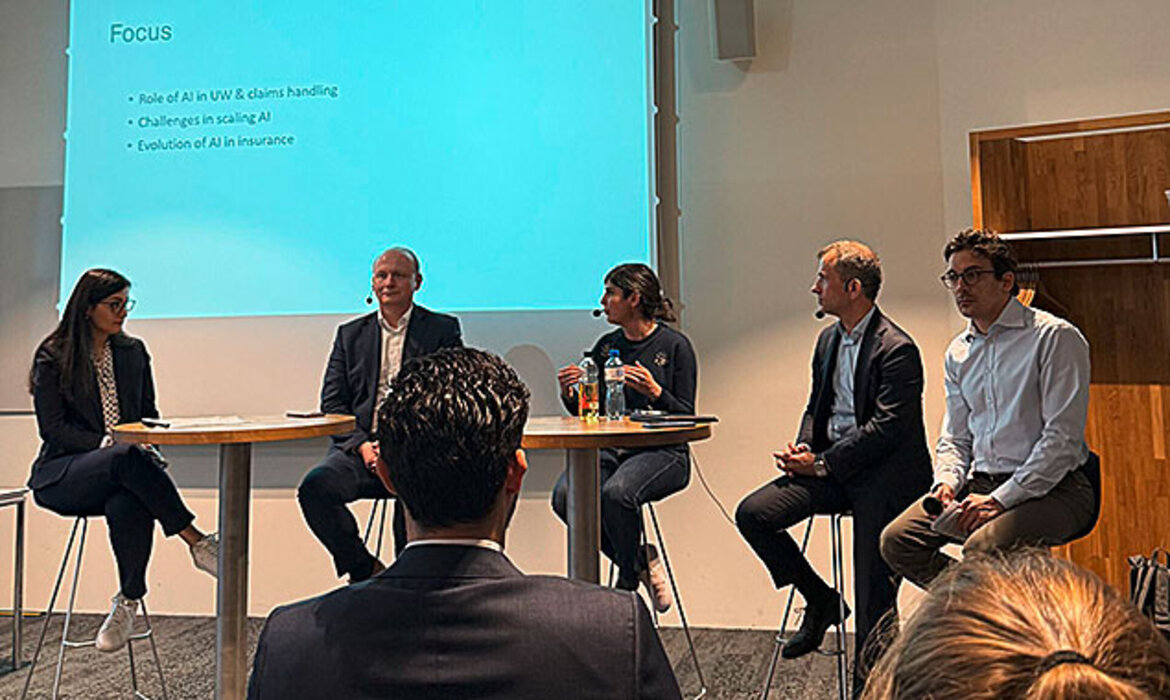Unlocking the Future
AI Integration in Insurance and Reinsurance

Leading experts
And the role of AI in insurance and reinsurance
Early April, a dynamic and insightful panel discussion on AI integration in insurance and reinsurance took place. This event, hosted by the Actuarial Data Science group within the Swiss Association of Actuaries, brought together leading experts Ermir Qeli, Peter Wanda, and Afsoon Ebrahimi, alongside moderator Parisa Mamooler and co-moderator Alessandro Torre. Together, we explored how artificial intelligence is not only revolutionizing traditional practices but also driving innovation across the entire insurance value chain.
Transforming Underwriting and Claims Handling
One of the most exciting areas of AI impact is in underwriting and claims handling, two core functions that historically have been time-consuming and resource-intensive. Traditional underwriting requires manual data gathering, risk assessment, and often a lengthy back-and-forth between underwriters and brokers. This process is slow and prone to human error.
AI technologies, such as machine learning and natural language processing, are changing this landscape by automating data analysis and pattern recognition. Insurers can now quickly analyze vast volumes of structured and unstructured data - from customer histories to social media trends - enabling faster, more accurate risk assessments. This not only reduces the workload on underwriters but also allows for real-time decision-making, enhancing competitiveness.
Claims handling is another area seeing significant transformation. AI-powered automation and image recognition can expedite claims processing by quickly verifying damage or fraud detection. For instance, when a customer submits a claim, AI can instantly assess photos of the damage, flag suspicious cases, and even predict the time to settlement. This acceleration improves operational efficiency, reduces costs, and most importantly, enhances the customer experience through faster and more transparent service.
Overcoming Challenges to Scale AI
While the benefits are clear, scaling AI initiatives across insurance and reinsurance companies remains challenging. Our panel highlighted two primary barriers: data quality and legacy systems.
AI models are only as good as the data they learn from. Many insurers struggle with fragmented, inconsistent, or incomplete data spread across different departments or legacy databases. Cleaning and standardizing this data requires significant effort but is crucial to developing reliable AI solutions.
Additionally, many insurance companies rely on legacy IT infrastructures built decades ago. Integrating modern AI technologies with these outdated systems without disrupting ongoing operations can be a complex and costly undertaking. It requires not just technical upgrades but also cultural and organizational changes.
Addressing these challenges demands a strategic approach that includes investing in data governance, fostering cross-functional collaboration, and adopting scalable AI platforms that can evolve alongside the business.
The Evolution of AI and the Actuarial Profession
Looking ahead, AI's role in insurance will only deepen and expand. One promising frontier is the creation of personalized insurance products tailored to individual risk profiles. Instead of one-size-fits-all policies, insurers can offer dynamic coverage and pricing adjusted in real-time based on customer behavior, lifestyle changes, or emerging risks.
AI will also revolutionize how insurers interact with customers. Chatbots and virtual assistants are already handling basic inquiries, but future AI-driven experiences could proactively engage customers, anticipate their needs, and offer advice or products that match their life stages - making insurance more intuitive and accessible.
This AI evolution has profound implications for the actuarial profession as well. As AI models become more sophisticated, actuaries will need to expand their skill sets to include data science, programming, and an understanding of AI ethics and governance. Actuaries will play a critical role in validating AI models, ensuring fairness, transparency, and compliance with regulatory requirements. The profession is evolving from traditional statistical analysis to a hybrid of actuarial science and data science.
Conclusion
The panel discussion was an enriching experience, highlighting how AI is not just a tool but a strategic enabler for insurance and reinsurance. By streamlining underwriting and claims, addressing operational challenges, and pioneering new customer-centric products, AI has the power to transform the industry.
This transformation, however, requires collaboration across technical, actuarial, and business teams to navigate challenges and unlock AI's full potential. I'm grateful to my fellow panelists-Ermir, Peter, Afsoon, and Alessandro-for their valuable insights and look forward to witnessing the exciting developments AI will bring to our field in the years ahead.
Team Data Science

Patrick Cheridito




